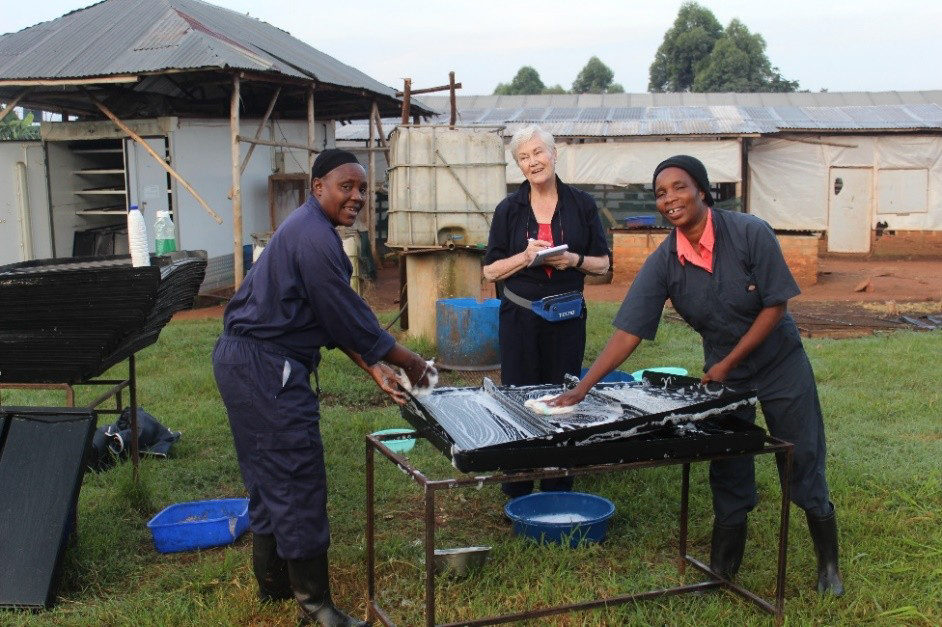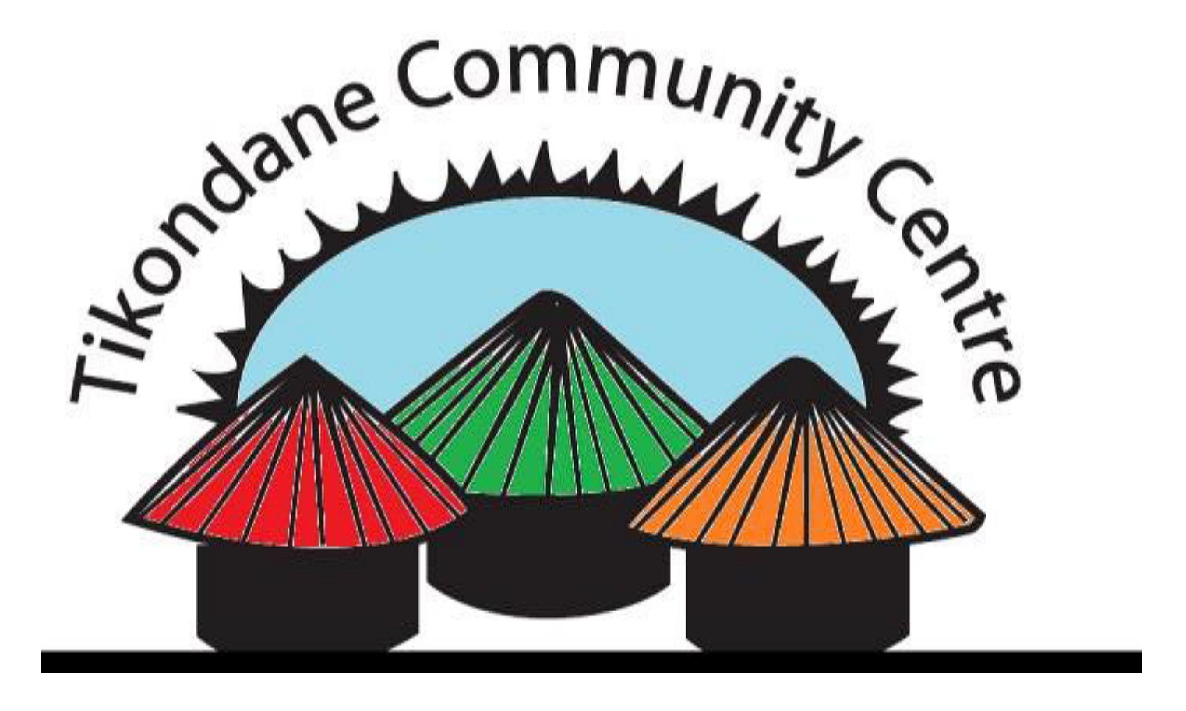Dear Friends,
With covid omicron on the march it seems we are all in trouble again, but please note that at Tiko we are looking forward to a New Year that will be very hard, but will take Tiko towards sustainability, even though the rains are only just arriving now, three months late! We must thank you for having brought us this far, with almost two years of no income from the lodge and no of my fund-raising trips. For us, God is Great, and we hope that you, who have a heart for the poor, will have a feeling of contentment, however much covid now hits you.
THE VISIT TO THE UGANDAN ‘MILLIONAIRE FARM’ OF DR. EMMA NALUYIMA

The weeklong visit to Uganda yielded a wealth of practical ideas for Tiko to become more productive by introducing new practices, many of which can easily be copied by members of the community.
BREEDING BLACK SOLDIER FLY MAGGOTS
As we are rearing chickens and encouraging others to do so, we learned how to breed Black Soldier Flies the maggot stage of which is excellent food for chickens and fishes. The flies hatch in the cages in the mating building and, if the temperature and humidity are suitable and they can smell food for maggots, they will mate, and eggs will be laid.


number to be easily seen.
Adult flies do not eat but the females do drink water. After mating the female lays some 500 eggs. The eggs are taken to the hatchery where the maggots will emerge and are fed on manure and maize bran or vegetable waste.
The eggs are taken from the mating cage to the maggot shed, where the larvae will soon be visible as tiny white moving spots. Very soon they are visible little light-coloured maggots. They eat voraciously until they are ready to pupate. Every two days they are selected from the dish and put into a new dish with new food, which consists of chicken droppings and maize bran.

When they have eaten through that – noticeable because the food will feel dry – they are given a new dish with new feed every second day till day 12. Then the maggots will be harvested and given to chickens or processed for pellets. At the farm in Uganda about 40 kg of maggots per day are produced. When the remaining larvae have turned black (pre-pupae) they will become(pupae), which are collected on day 19 and put into the mating cage.
At Tiko we are already in production!
FODDER: TIKOS FIRST EFFORT
Sprouting maize seeds make good fodder for chickens, rabbits and cattle so Christine, Lydia and Elke learnt how to produce maize sprouts.

cleaning trays for making fodder from
maize seeds.


Note the Black fly cages under construction in the background.
VEGETABLES
A new way of growing vegetables: The growing medium consists of two thirds soil and one third stones, which hold water. The soil is compost plus humus produced by worms. Rabbit urine which is exceptionally good fertilizer can be added to the compost. The rings are held in place by wire mesh and are more durable than our bags for bag gardens.

CROWD FUNDING
After a slow start we are happy to report that with the arrival of a very generous donation we exceeded our target. However the need for stoves and fuel is still so great that we have decided to keep the project alive, so watch out for further information that will shortly be appearing on the GlobalGiving website. However, we are investigating what best to do to continue the project. One reason for continuing is to make it clear to people that this new method must be followed before deforestation totally ruins their country. Another necessary behavioural change would be for people to stop cooking more than once per day. We will have to find out what types of uncooked food would be acceptable.
Our 30 girls busy on the project as the need for firewood as a renewable source of energy in this area is so great and there is no firewood to buy in Katete now. The only option is for people to grow wood themselves and use small pieces on a cheap clay-stove. This is definitely the cheapest and best solution in this time of climate change.


We also make our foodstuff ONENEPA regularly and give it to those who request it. On our forthcoming OPEN DAY we will have lists of products and prices.
However am still investigating the best way to continue the project. One way to continue is to make clear to the locals that they have to accept this new method before it is too late. Another necessary behavioural change would be to stop cooking three meals per day.
In the meantime we are very grateful for any further contributions which will certainly be put to good use.
LIFE GOES ON
We are still busy with our ongoing projects: Otto Mille financed students are all away on their courses, Vera for book-keeping, Jason for electricity and Lozi for hospitality. Lozi will have a second year. Federico, who helped us so much with this grant, is in trouble with consequences of covid in his family and at his work, and we wish him all the best and send our love. The 14 clubs have all started planting and will have the best results possible, with all the care they are taking, thanks to Otto per Mille.
We are happy that Mustapher, who did much of the building work at Tiko before starting his political career, has returned. He was doing quite well in politics but that was before the last elections! We now have him on contract to construct the three buildings we need for our Uganda plans. He has already completed a few maintenance jobs that needed doing and there are several more waiting to be done.
You will understand that covid, even covid omicron, can’t stop us from feeling that WE SHALL OVERCOME. Of course, money is a big problem now. If you could help us just a little time longer, we would be so very grateful. With the very best wishes for your festive season, hopefully in the feeling that our project is hanging in there.
Yours ever – the Tiko family
– For donation information please have a look on ‘Support Tiko’ –
